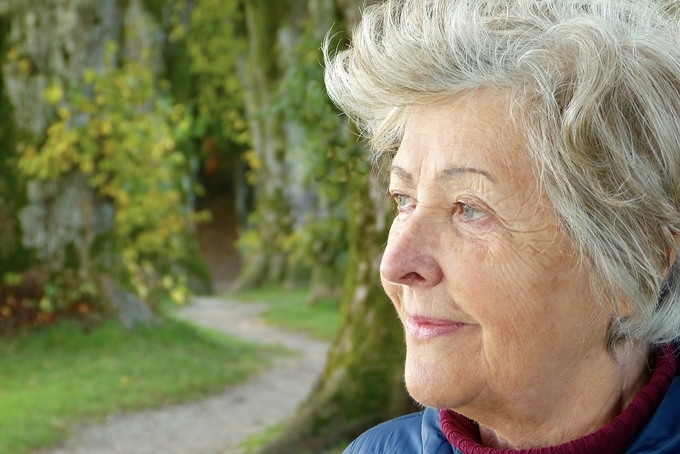The first signs of dementia are not always obvious, because the disease develops slowly. The usual mild forgetfulness is normal in elderly people, so it’s essential that you know how to tell apart a mild memory loss problem from dementia.
Moreover, other illnesses such as thyroid problems, vitamin deficiency, anxiety and depression can also cause forgetfulness, so just because you’ve noticed that your loved ones started to forget where they left their keys or someone’s name, it doesn’t mean that they suffer from dementia.
Alzheimer’s Disease
Alzheimer’s disease accounts for approximately two-thirds of cases in elderly people, which makes it one of the best-known causes of dementia.
You won’t be able to tell that your elderly relatives suffer from Alzheimer’s right away, because the disease progresses gradually and its symptoms often overlap with other illnesses.
However, if you notice that your loved ones have difficulty forming new memories, or that they are experiencing spatial awareness difficulties, it’s time you take them to their physician.
Forgetting names, faces and recent events are also the signs of dementia.
If your loved ones repeat questions after a very short interval, misplace items regularly, become confused about the date or time of day, it’s very likely that they’re suffering from Alzheimer’s.
Vascular Dementia
Vascular dementia is the second most common cause of dementia, right after Alzheimer’s disease. The symptoms of vascular dementia are similar to those of Alzheimer’s, which can include problems with communication, disorientation and memory loss.
However, vascular dementia can be recognized by several other warning signs, depending on the area of the brain that’s been affected by the disease.
People who are affected by vascular dementia may experience personality changes, i.e. they’ll become apathetic, depressed and far more emotional than before.
A frequent urge to urinate, difficulty walking and problems with reasoning, planning and attention are all early signs of vascular dementia.
The symptoms will get worse over time, and people suffering from vascular dementia will eventually need help eating, dressing and using the toilet, which is why you should think about offering them all the necessary care at some of the residential aged care facilities, where they’ll be comfortable and all their needs met.
Also, some people may experience both vascular dementia and Alzheimer’s disease, which is called ‘mixed dementia’.
Frontotemporal Dementia
A change in how people express their feelings towards others, a lack of interest or concern or inappropriate behaviour are some of the signs of frontotemporal dementia.
Failing to maintain their normal level of personal hygiene, over-eating or over-drinking, developing unusual beliefs, interests or obsessions, and a lack of awareness of any changes in their personality or behaviour will also indicate that the person is suffering from frontotemporal dementia.
Some of the symptoms also include difficulty getting words out or understanding them, forgetting the meaning of words, movement problems, and difficulty recognising people.
Dementia With Lewy Bodies
Aside from common dementia symptoms, dementia with Lewy bodies includes several specific symptoms as well. Changes in attention, confusion, and unpredictable hour-to-hour changes in alertness are all the signs of dementia with Lewy bodies.
Furthermore, tremors, muscle stiffness, and slowed motions are also common in dementia with Lewy bodies, but in Parkinson’s disease as well.
Sleep disturbances such as shouting while sleeping, or acting out dreams, along with visual hallucinations during the day are also signs of this disease. Hallucinations are well-formed and very realistic, which can be very dangerous if a person with dementia is left alone.
People with dementia with Lewy bodies are more prone to fainting, unsteadiness and falls.
Dementia is a collection of symptoms that can be caused by a variety of possible diseases, so it’s essential that you know the early symptoms and differentiate the disease from some other mental problems.
Therefore, if you notice some of the early signs of dementia, make sure you take your loved one to their physician, to make sure you’ve been interpreting the signs well, and that you can offer your loved ones proper care.
You can find much more information on living a holistic lifestyle in these free magazines and on our YouTube channel.
 Diana Smith is a full time mom of two beautiful girls interested in topics related to health and alternative medicine. In her free time she enjoys exercising and preparing healthy meals for her family.
Diana Smith is a full time mom of two beautiful girls interested in topics related to health and alternative medicine. In her free time she enjoys exercising and preparing healthy meals for her family.






